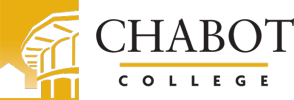
Residential Sprinkler Fitter Technology
This apprenticeship program map for the 2024-2025 catalog year provides an overview of the required courses.You must be accepted into the apprenticeship by the Program Sponsor.
Apprenticeship Programs at Chabot College are an excellent way to earn a certificate and/or an associate degree while also gaining real-world, paid work experience in the occupation. The requirements and expectations vary depending on the apprenticeship program. Classes also vary by program, with some offered in person, online or off-campus.
I'm ready to get started.What do I do next?
- Apply to be an apprentice for the program you are interested in www.chabotcollege.edu / academics / apprenticeship
- Meet with a Chabot College counselor to review and plan general education courses (for associate degree programs only) www.chabotcollege.edu / counseling
Students must first be accepted into the Residential Sprinkler Fitters Apprenticeship Program before enrolling in APSF 9711 through 9715. The Apprenticeship program is a two and a half (2-1/2) year earn-and-learn program. Apprentices must work a total of 4000 hours in two and a half (2-1/2) years to reach journey level status.
Apprentices are required to attend related instruction classes a minimum of 144 hours per year at the Joint Apprenticeship Committee (J.A.C.) Training. The responsibilities and work of the Residential Sprinkler Fitter consists of the knowledge and ability to install all types of fire protection systems. A Residential Sprinkler Fitter is able to read blueprints and layout and install hangers and overhead piping in all types of residential buildings and all types of construction.
For more information on Apprenticeship Programs, including Residential Sprinkler Fitter Technology, visit www.apprenticeship4you.com/our-programs.
What can I do with this major?
All Apprentices start off with an hourly wage and fringe benefit package and the wages increase based on advancement within the program. Upon completion of the apprenticeship program and passing the CA state licensing exam, the graduate may be employed at the journey level by contractors, or may pursue an entrepreneurial path.
Upon completion of the program, the median hourly rate is $34.92 (2021 rate, East Bay). LMI projections for East Bay region project 751 openings per year for sprinkler fitter occupations.
Learning and Career Pathway
Icon Key
APSF 9795 is a work experience course that may be taken each term for the apprentice to receive credit for working.
Semester 1
APSF
9795
Occupational Work Experience - Sprinkler Fitter Apprenticeship
Semester 2
APSF
9712
Residential Sprinkler Fitter Apprenticeship II
APSF
9795
Occupational Work Experience - Sprinkler Fitter Apprenticeship
Semester 3
APSF
9795
Occupational Work Experience - Sprinkler Fitter Apprenticeship
APSF
9713
Residential Sprinkler Fitter Apprenticeship III
Semester 4
APSF
9714
Residential Sprinkler Fitter Apprenticeship IV
APSF
9795
Occupational Work Experience - Sprinkler Fitter Apprenticeship
Semester 5
APSF
9795
Occupational Work Experience - Sprinkler Fitter Apprenticeship
APSF
9715
Residential Sprinkler Fitter Apprenticeship V
General Education Requirements
Students may earn an AA or AS degree at Chabot with completion of any one of the following general education patterns:
- Local AS pattern
- CSU General Education Breadth pattern
- IGETC General Education pattern
See the general education course lists: https://www.chabotcollege.edu/counseling/transfer/ge-requirement-transfer-archive.php.
It is recommended that all students meet with a Chabot College counselor to review and create an individualized student education plan. See the Counseling Department webpage for information on how to speak with a counselor: www.chabotcollege.edu/counseling.
Other (specify)
Elective units may be needed to reach the 60 units required for an Associate's Degree. Please see a counselor for assistance in selecting elective units.